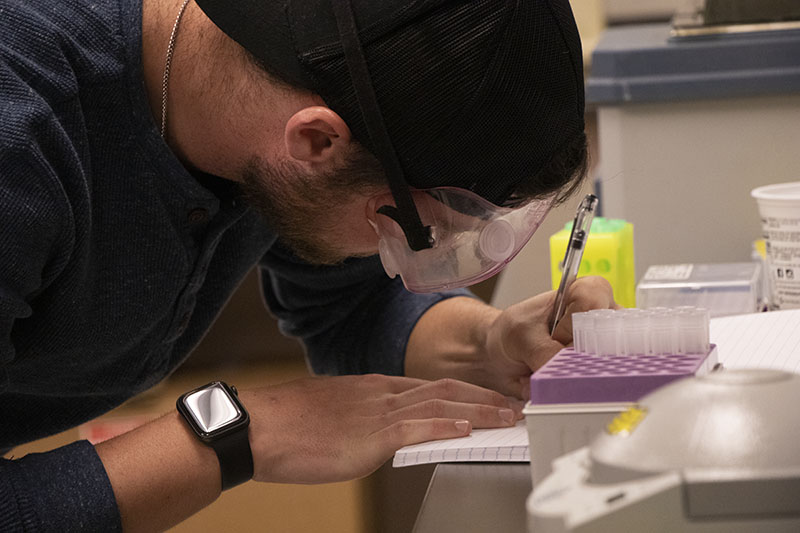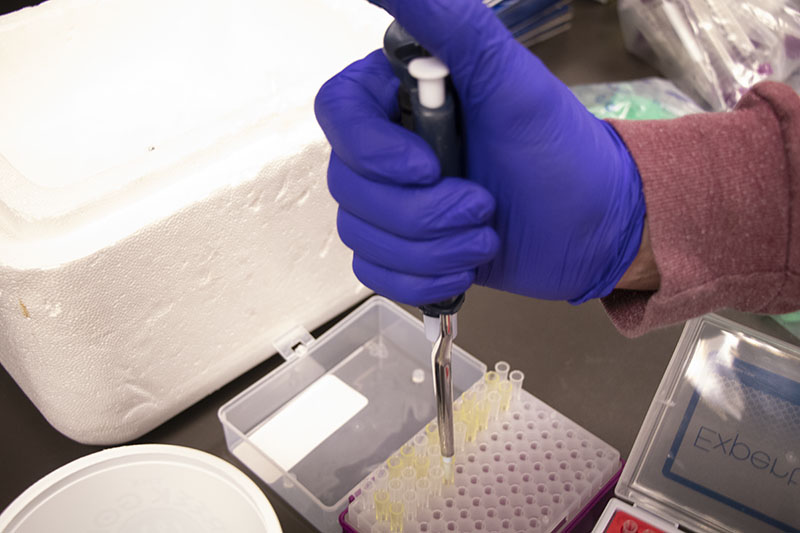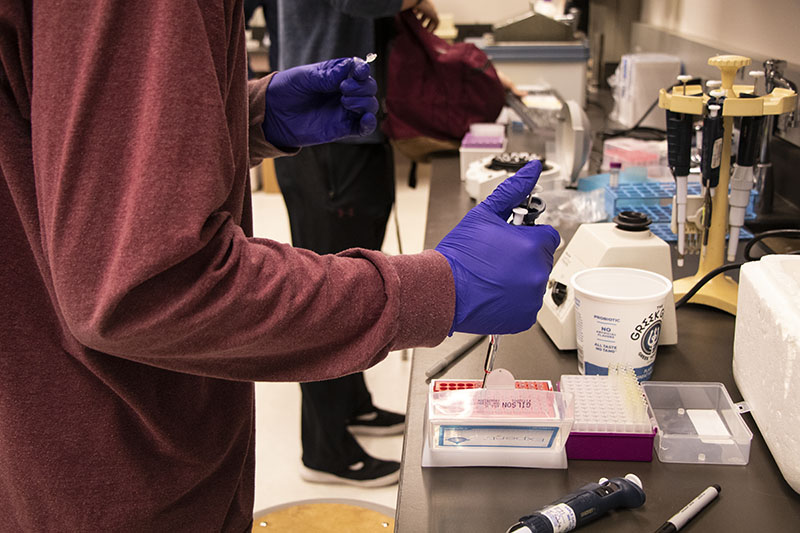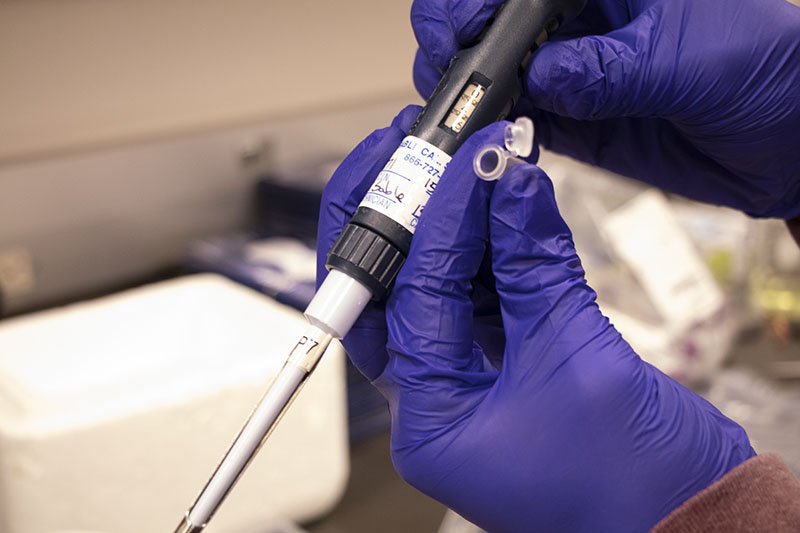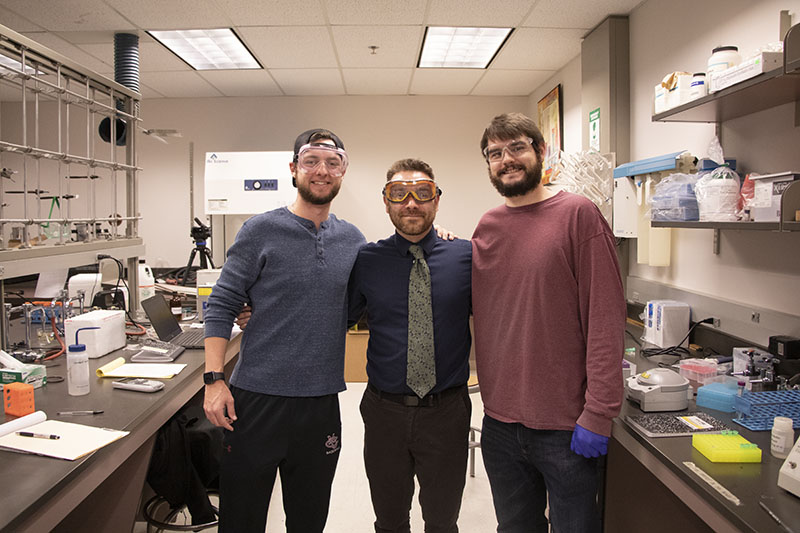When professors accept positions at Colorado Mesa University, it means they place value on teaching students above everything else. It’s called the teacher-scholar method, and it’s a philosophy of the university. After putting teaching and students first, faculty are still expected to contribute to their discipline — and one new faculty member is wasting no time balancing the two worlds.
Assistant Professor of Biochemistry Christopher Dieni, PhD, is sharing his passion for research by getting students out of the classroom and into the lab. It’s only his second semester at CMU and already Dieni has a team of undergraduate students researching ways they can get insulin to work in cases where it has stopped.
“I was interested in the research when Dr. Dieni explained that it has to do with Type 2 diabetes, cancer and Alzheimer’s. I have experience with Alzheimer’s with my grandpa so it’s something that resonates with me,” said junior and student researcher Austin Lorenz.
The program is an undergraduate-focused biochemistry research project called Laboratory for Evaluation of Pharmacological Agents in Remediation of Disease or LEoPARD for short.
“We want to find out ways in which we can reverse insulin resistance,” said Dieni. “The stereotypical answer that most people would give, assuming that diabetes is only associated with poor lifestyle and poor nutrition, is exercise and diet. But what happens in the cases of those non-obese diabetics? What happens to people that have mobility issues who cannot simply get up and start running on a treadmill? What happens when exercise and diet are less of an option or they simply don’t work? Well, you need some type of intervention. You need some kind of therapeutics, or drugs, for lack of a better term.”
There are medications for diabetics on the market, but according to Dieni, they tend to have side effects and some don’t work at all. The assistant professor’s passion into insulin resistance comes from his family history with Type 2 diabetes.
“It’s impacted several people, several generations in my family. We’re looking for something that is better — an alternative with less side effects,” said Dieni.
When it comes to undergraduate research opportunities, CMU is unique. Most other universities don’t offer students the chance to be involved in research until graduate school. At CMU, they get hands-on experience at the undergraduate level and from their instructors, not teaching assistants.
“It’s nice to know that if I have any questions I can go to Dr. Dieni and he’s always willing to answer them. I have plenty of friends at other universities that tell me their professors don’t even know their name. So for me to get super close to Dr. Dieni with this research and the one-on-one time we have, it’s rewarding and I really appreciate it,” said Lorenz.
“The beauty of universities that focus on undergraduates is that an undergraduate may come out with their bachelor’s degree already a published scientist in the peer-reviewed scientific literature," said Dieni. "Where at other institutions, undergraduates get diluted by master’s students and doctoral students.”
LEoPARD's student researchers include Brett Duncan, Corey Keating and Austin Lorenz, and the team continues to grow. This project gives undergraduate students the opportunity to work on important research that will hopefully improve the lives of many individuals.
